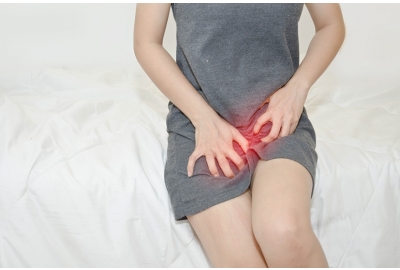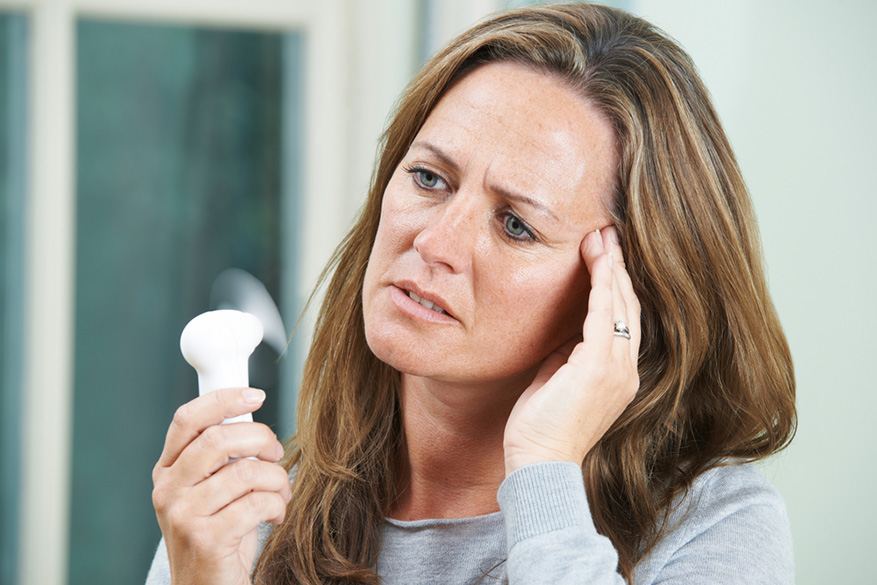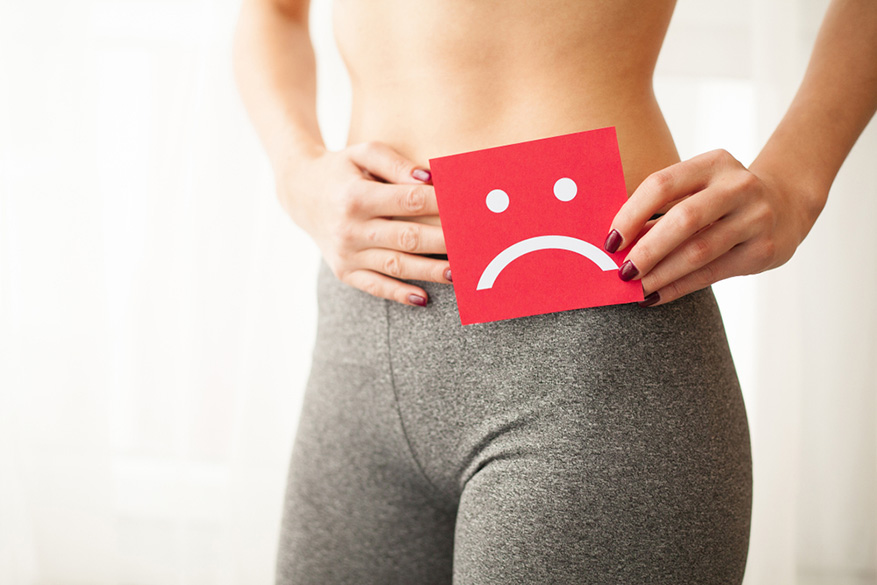
Menopause and Yeast Infections: Everything You Need to Know

By Siriluk ok / Shutterstock.com
If you’re experiencing symptoms of menopause, you probably feel like you’re having more yeast infections than ever. Could there be a link between menopause and yeast infections? In this guide, we explain what yeast infections are and what causes them. Here’s what you need to know about menopause relief and yeast infections:
Shop All Menopause Relief Products
What exactly are yeast infections?
Most vaginas contain some amount of yeast, which is necessary to keep it healthy. Normally, you also have some good bacteria that keep the yeast from growing unchecked. However, if conditions are right, then the yeast can grow out of control and overwhelm the good bacteria. Symptoms of a vaginal yeast infection include irritation, itchiness, redness, and burning, as well as a discharge that is usually thick, white, and clumpy. The yeast that causes this type of infection is usually candida, so you might see a yeast infection referred to by the name “candidiasis.”
Yeast infections are very common in women and very treatable. Symptoms get worse the longer you have the infection, so it’s important to treat it promptly. Antifungal medications and treatments are available over the counter at drugstores and come in cream, ointment, tablet, and suppository forms. Your doctor may also prescribe you antifungal medication that is only available by prescription.
While yeast infections are common, you should still contact your doctor if it’s your first infection or if you are pregnant. If your yeast infection was caused by diabetes or a weakened immune system, you should also contact your doctor so they can prescribe a treatment that won’t interfere with the other medications you may be using. Finally, you should reach out to your doctor if you have a very severe yeast infection, you’ve had more than four yeast infections in one year, or your infection is caused by a less common type of fungus.

By SpeedKingz/ Shutterstock.com
Can menopause cause yeast infections?
Menopause itself is not a cause of yeast infections, and getting a yeast infection is not necessarily a sign of perimenopause or menopause. However, menopause does lead to fluctuations in hormones that can cause changes in the vagina, including vaginal dryness, alterations to your natural vaginal discharge, and the thinning of the vaginal walls. (To learn more about what vaginal atrophy is, check out our blog.) These changes can sometimes alter your vagina in a way that makes it a more conducive environment for yeast infections.
However, another common condition associated with aging has been linked to yeast infections. As you get older, you’re more likely to develop diabetes. If your diabetes is not controlled, then your blood sugar can spike, which can, in turn, lead to an overgrowth of yeast, including in your vagina. If you are going through menopause and also have diabetes, then diabetes might be what’s causing yeast infections.
Other causes of yeast infections include taking oral contraceptives or hormone therapy that increase estrogen levels. Pregnancy — which also results in high estrogen levels — can also be a contributing factor to yeast infections. Other factors include an impaired immune system (which makes your body less resistant to infection) and antibiotic use (the antibiotics can accidentally kill off the good bacteria that helps keep your vaginal yeast in check).

By Yuriy Maksymiv / Shutterstock.com
How can you prevent yeast infections?
A moist, warm environment is the perfect breeding ground for yeast, so you want to keep your vaginal area dry. Do your best to avoid tight, non-breathable pantyhose and other garments that trap sweat, moisture, and other things around your crotch. Cotton underwear is best since it allows your skin to breathe and soaks up any moisture instead of letting it sit on your skin. Don’t stay in wet, sweaty garments such as workout clothes or swimsuits for long periods of time. Change into clean, dry, breathable clothes as soon as possible.
You should also avoid douching as well as the use of scented feminine products, including tampons and feminine washes. Your vagina is self-cleaning, so it doesn’t need any help, and these products can remove the good bacteria that controls vaginal yeast. For this same reason, you should also avoid hot tubs and very hot baths. Finally, you should not take antibiotics unnecessarily, such as for the common cold. Excessive antibiotic use can kill off the vaginal bacteria. If you are prone to yeast infections and your doctor wants to prescribe you an antibiotic, talk to them about your treatment options.
We hope this helped clear up your questions about menopause and yeast infections. To learn more about this phase of life, including how menopause and body odor are linked, check out the rest of our resource center.